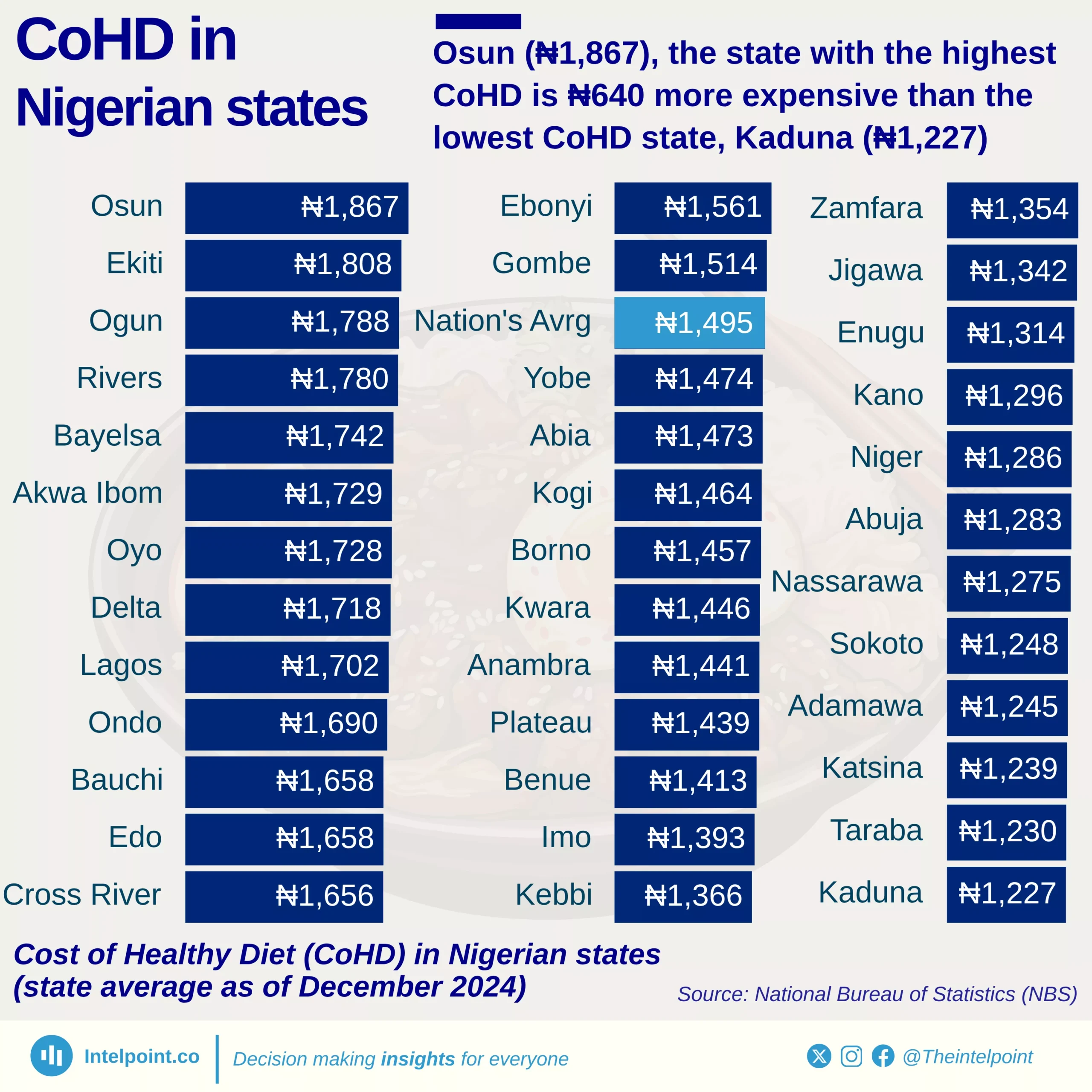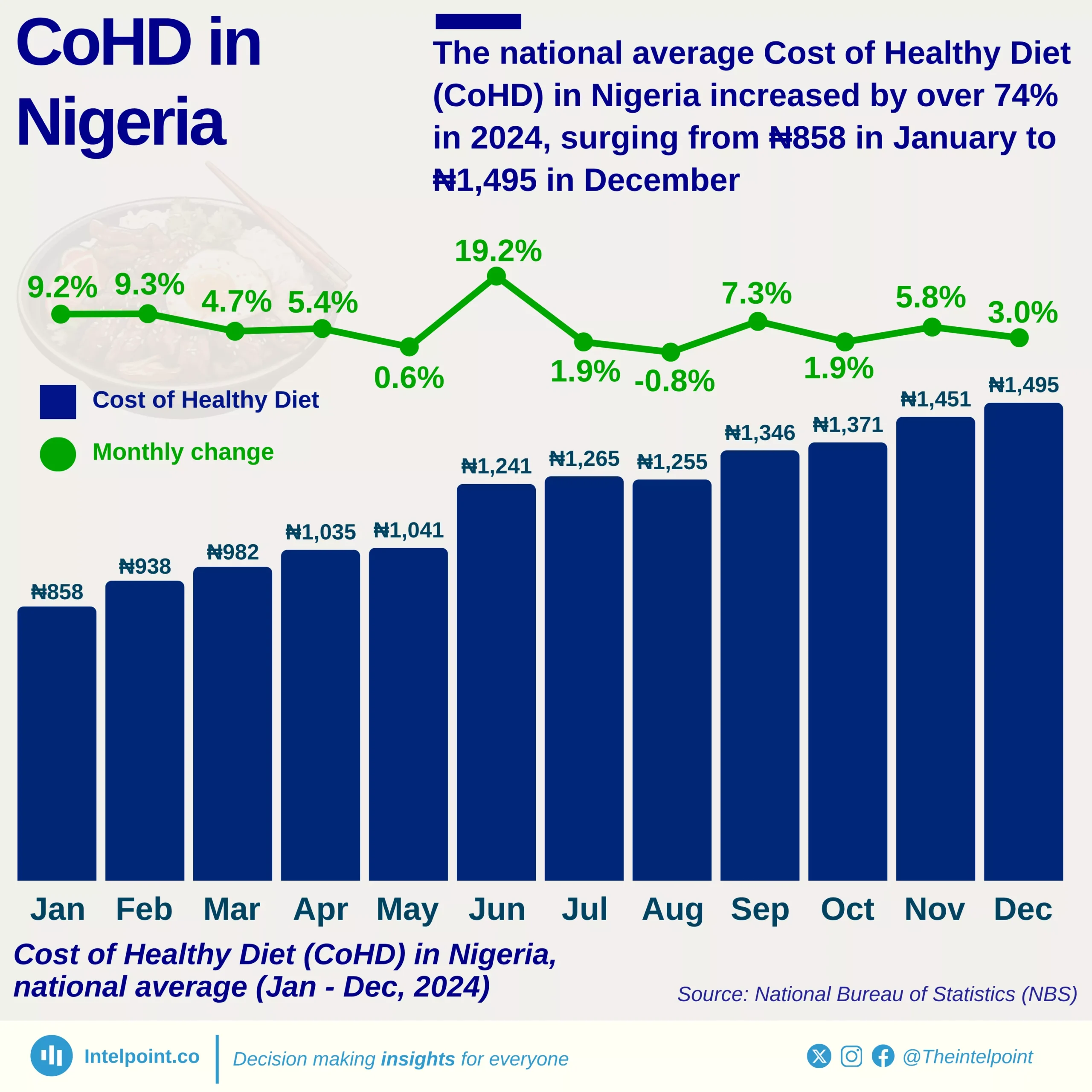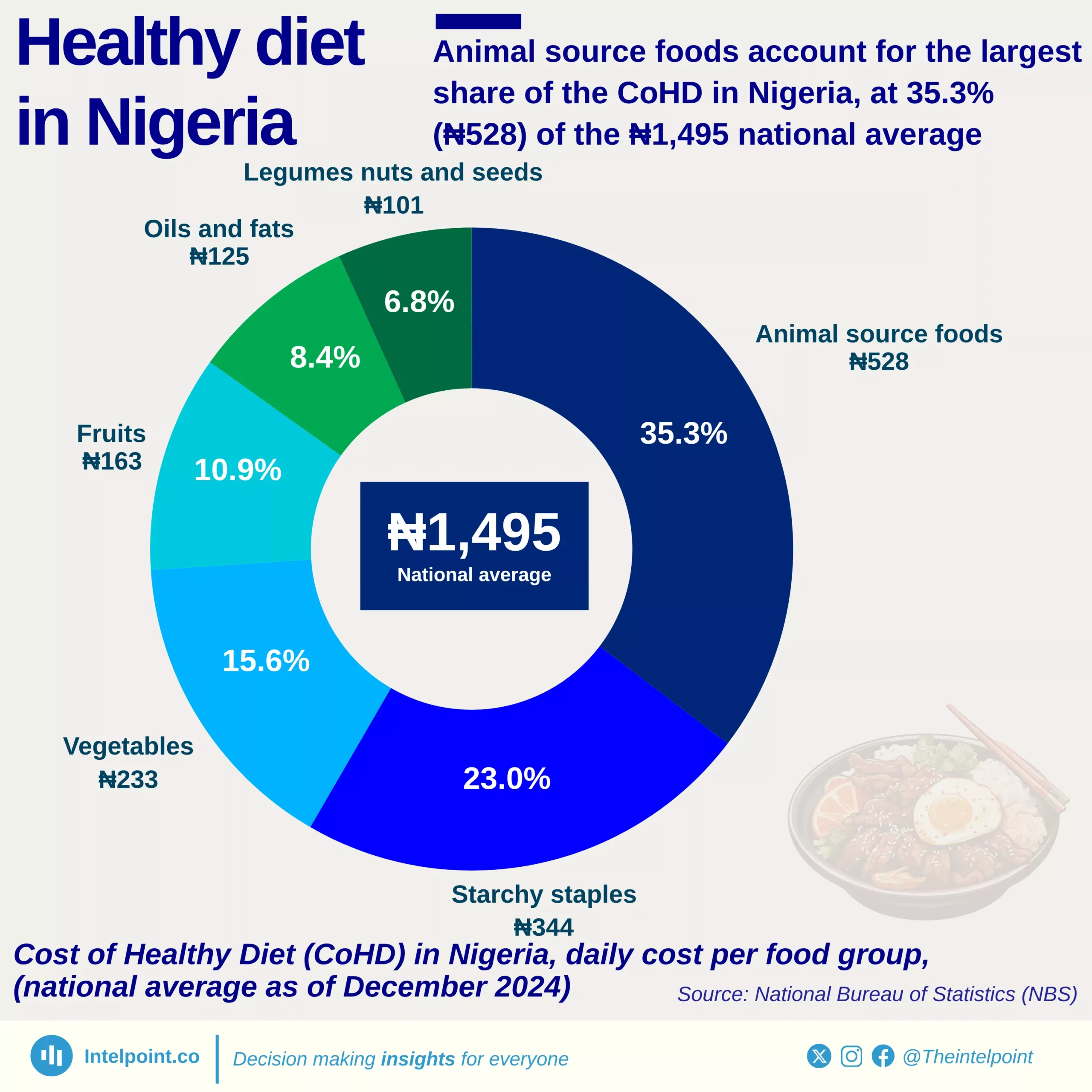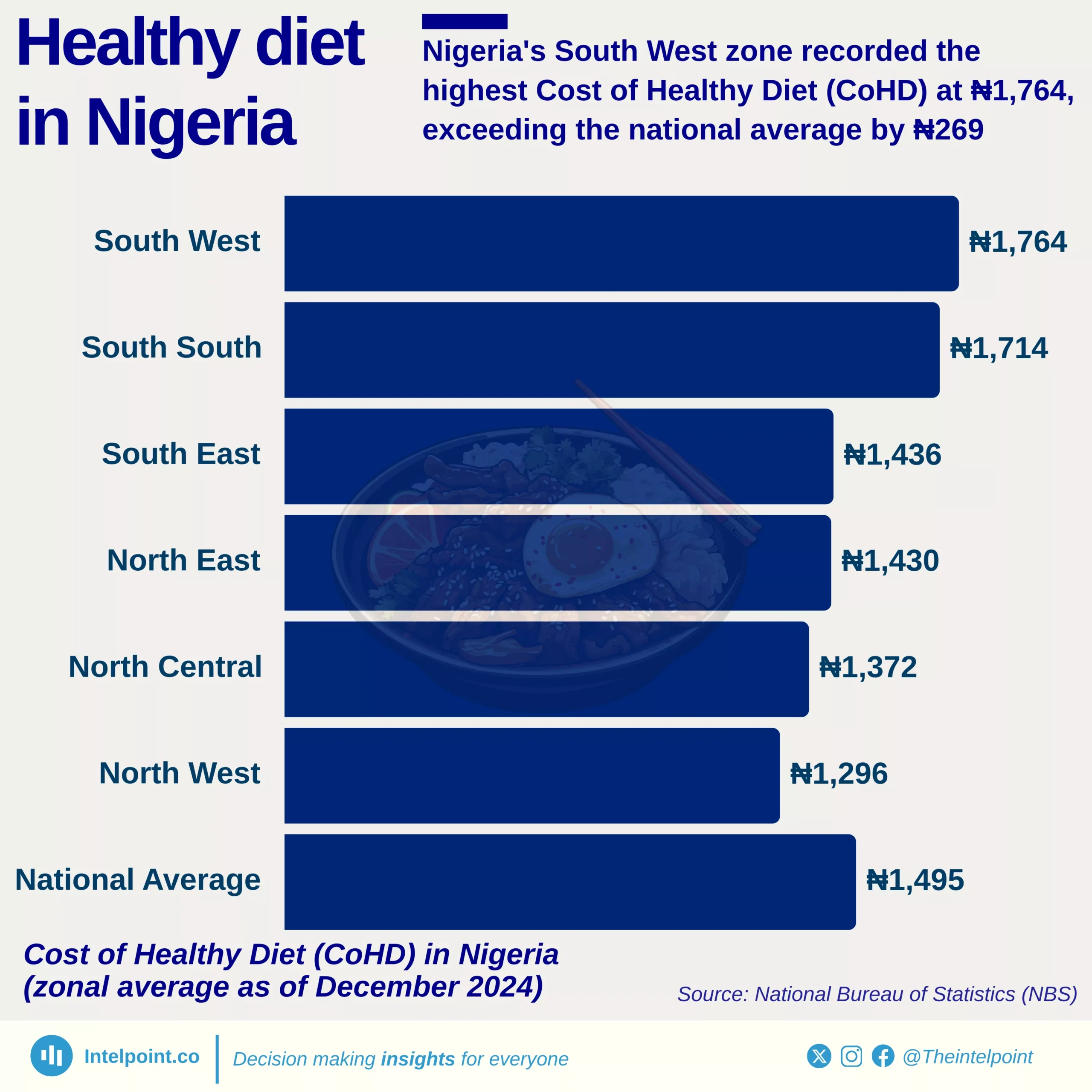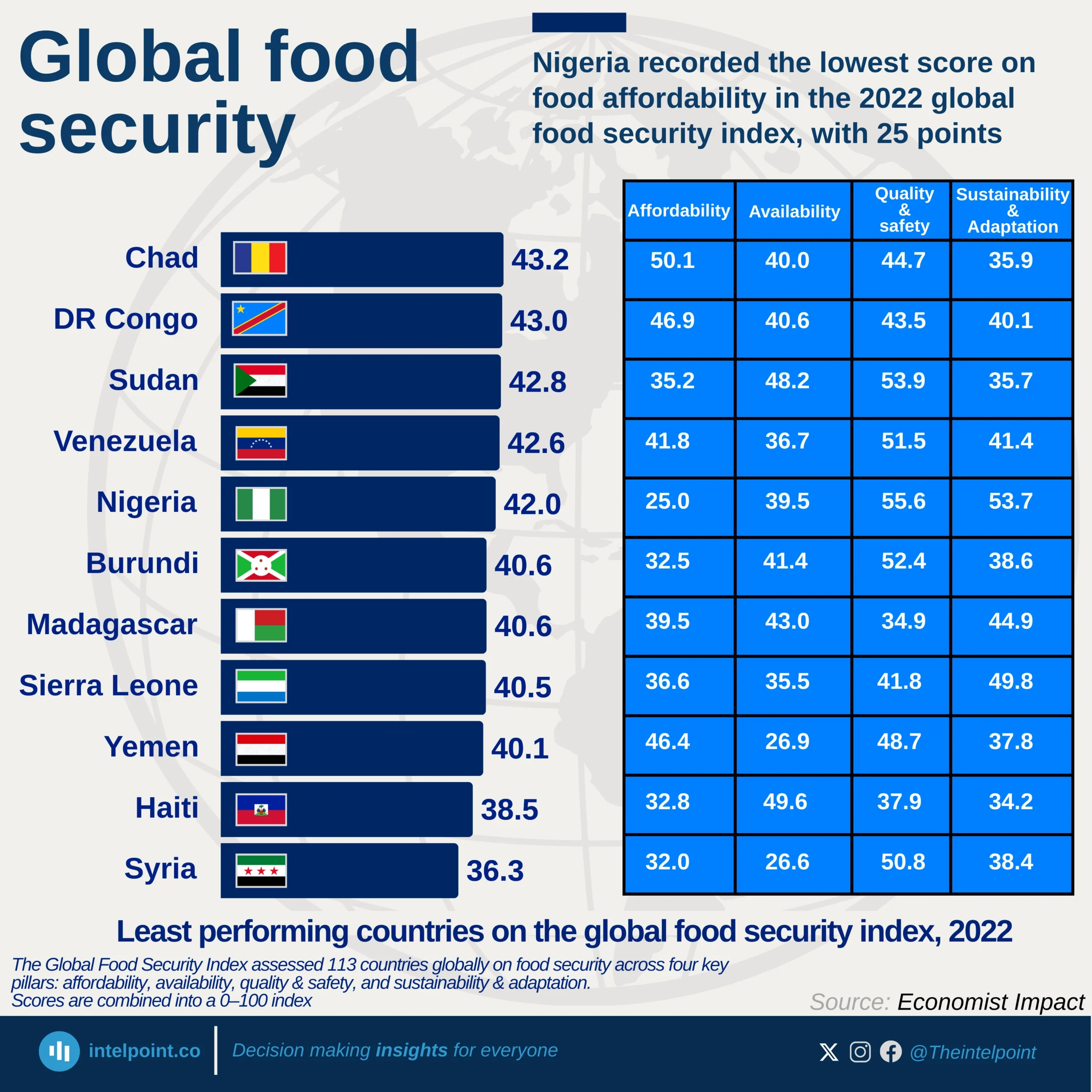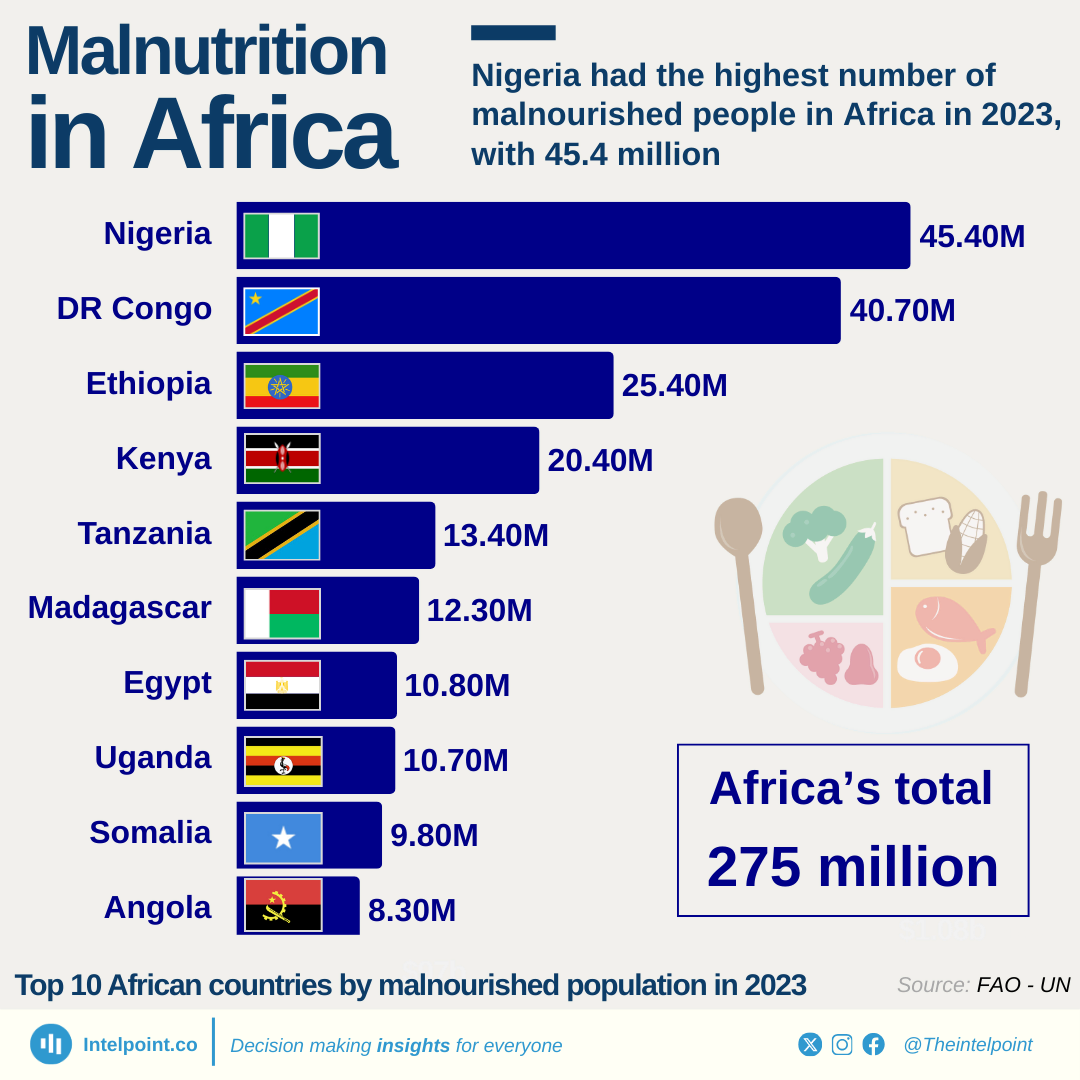According to the National Bureau of Statistics (NBS), the percentage of the minimum wage required to afford a healthy diet dropped sharply from 124.1% in June to 54.2% in July, following the new wage adjustment.
Before the wage increase, Nigerians earning the ₦30,000 minimum wage needed more than their entire monthly salary to maintain a healthy diet. By June 2024, the cost of a healthy diet was 24% higher than the minimum wage, underscoring the strain of food inflation on household welfare. After the new wage took effect, the burden eased considerably, though by December, the ratio had risen slightly to 64.1%, signalling that while wage reform improved affordability, price pressures persisted.
